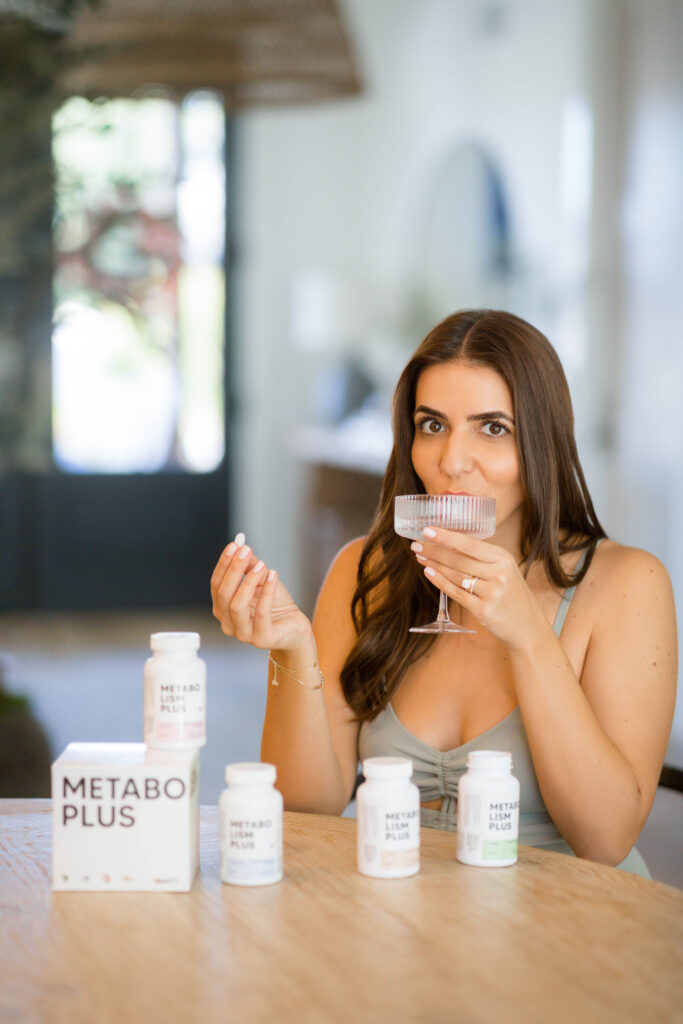
Polycystic ovary syndrome (PCOS) is a condition marked mostly by hormonal imbalances. One noteworthy hormone that has a big effect on PCOS symptoms is cortisol.
What is cortisol? It’s a stress hormone! Our bodies produce cortisol to keep us alert and awake, while it produces melatonin to keep us calm and focused. When these two are balanced, life is good! You feel energized but relaxed. However, if one is out of whack, you can immediately feel “off” and the imbalance can domino into other issues.
When cortisol levels are high, we feel wired, anxious, fatigued, and, of course, stressed-out! Cortisol can disrupt SO much. Luckily, there are lots of ways to naturally heal your high cortisol levels (and other hormonal imbalances) and find symptom relief.
Here’s what you need to know about stress hormones and PCOS:

How To Reduce Cortisol: PCOS Symptom Relief
Not only are high cortisol levels complicated for women with PCOS, but PCOS can actually contribute to making these cortisol levels worse! It’s an ongoing cycle where excess stress hormones make our symptoms worse which can then make excess stress hormones. Long-term elevated stress levels not only contribute to several difficult symptoms, but they can lead to high blood pressure, heart attacks, strokes, and hypertension. Needless to say, it’s important to get cortisol under control.
How Does PCOS Cause High Cortisol Levels?
11beta-HSD 1
Polycystic ovarian syndrome (PCOS) can cause high cortisol in several ways! First of all, studies show that women with PCOS may just naturally produce more cortisol due to changes in an enzyme called 11beta-hydroxysteroid aminotransferase type 1. (Yes, a mouthful!) This means women with PCOS as a baseline just make more stress hormones if the hormonal imbalance goes unmanaged.
HPA Axis Dysfunction
Another reason Cysters have high cortisol is because of communication issues between three organs essential for the regulation of cortisol. It’s called hypothalamic-pituitary-adrenal (HPA) axis dysfunction (another mouthful) and it prompts your system to consistently produce excess cortisol. This dysfunction can worsen because of autoimmunity, mental health problems, metabolic conditions, and heart disease.
High Androgens
Androgens are male sex hormones, and when levels are too high in a woman’s body, it can cause a number of problems, including high cortisol. This is because elevated testosterone levels disrupt the feedback loop between the hypothalamus, pituitary gland, and adrenal glands . . . meaning it can worsen HPA axis dysfunction!
Insulin Resistance
Insulin resistance occurs when our bodies struggle to convert glucose to energy, which can lead to weight gain and elevated blood sugar levels. The cell’s poor response to glucose and the rise in insulin levels alert the body that we’re in distress, triggering the production of cortisol. With more glucose circulating our blood stream, the more our insulin-resistant cells struggle to utilize it for energy conversion. Consquently, excess glucose can be stored as fat. So, it’s a vicious cycle that has to be broken! Luckily, you can do it using natural healing methods we’ll get into next.
Progesterone Depletion
Low progesterone, which is common in women with PCOS, can also increase stress hormones. Progesterone helps the HPA axis communicate properly, so low progesterone contributes to its dysfunction and allows for uncontrolled cortisol production. Additionally, progesterone has anti-inflammatory effects, and high cortisol can also come from inflammation. Without enough progesterone to help keep inflammation at bay, your body may produce even more cortisol!

Symptoms of High Cortisol in Females with PCOS
- Anxiety
- Irritability and Mood Swings
- Depression
- Brain Fog
- Fatigue
- GI Issues
- Headaches
- Weight Gain
- Acne
- Hirsutism
- Irregular Menstrual Cycles
- Fertility Problems

How To Lower Cortisol: PCOS Edition
Cut caffeine.
Caffeine is a contributor to high stress levels! When you drink caffeine, it triggers your body to produce adrenaline and cortisol. Remember, some cortisol is good to balance out that melatonin and keep you alert but calm, especially when you are first waking up. However, things get problematic when those stress levels are too high. So, drinking tons of caffeine is not only potentially worsening your PCOS symptoms it could actually be making you more tired because of adrenal fatigue! So, reduce cortisol levels by finding alternatives to caffeine, such as setting up a morning routine, getting quality rest the night before, and taking a walk to absorb vitamin D in the morning.
Practice self-care.
Do you know what’s great for reducing stress? Doing things you love and taking care of yourself! Take time to consider how you can practice better self-care for healing. This one looks different for everyone, but you could try meditating, practicing deep breathing, getting creative, spending time with loved ones, or carving out time for your hobbies!
Get better sleep.
Sleep plays a huge role in hormone regulation. If you’re not getting good sleep, your body will struggle to keep hormones balanced, including cortisol. I know this can be a lot more difficult for some of us, because women with PCOS are way more likely to experience sleep disturbances than others. But, there are ways you can improve your sleep hygiene and hopefully get a better night’s rest! Here’s how to improve sleep with PCOS.
Do slow-weighted workouts.
Slow-weighted workouts and low-intensity exercises (weight lifting, yoga, pilates) are great for PCOS symptom relief and hormone balance! They allow you to keep your cortisol levels from going too high too quickly, which in turn can help to target insulin resistance and inflammation. If you’re not sure what slow-weighted workouts are, download The Cysterhood app for exercise routines specifically curated for women with PCOS!

Eat a balanced diet.
Eating a balanced diet isn’t just good for weight loss, but it’s great for hormone balance too! Getting on an anti-inflammatory gluten- and dairy-free diet can improve insulin sensitivity and reduce inflammation, which both contribute to high cortisol levels. And, don’t worry, you can still eat delicious foods while on a PCOS-friendly diet. The right foods will help you not only lower cortisol levels but eating well can help reverse a LOT of your PCOS symptoms! You can find my favorite PCOS recipes and meal plans on The Cysterhood app!
Take the right supplements.
Getting on a balanced diet is great for filling your body with the vitamins and minerals it needs to thrive. However, it’s hard to get EVERY nutrient your body needs in a given day. Supplements can fill in those gaps to ensure all your body functions can be carried out as usual. Two supplements are super helpful for stress hormones: omega-3 fatty acids and vitamin D!
Studies show that omega-3 fatty acids and vitamin D help by preventing 11beta-HSD 1 from converting cortisone into active cortisol, keeping stress hormones low. It also improves the functioning of the HPA axis I discussed earlier! Oh, and it’s anti-inflammatory so all the good stuff for stress. So, getting a supplement that includes omega-3 fatty acids and vitamin D can be a smart choice for Cysters!
The best supplements for PCOS are ones specifically made for your body. As a PCOS dietitian and a Cyster myself, I created Ovafit supplements with our unique needs in mind. Each supplement is NSF-certified and formulated with the highest quality ingredients! My Metabolism Plus bundle has everything you need to support PCOS healing including vitamin D and omega-3 fatty acids.

You can naturally reduce cortisol levels and relieve PCOS symptoms!
PCOS can be stressful on its own. There are a lot of symptoms that make day-to-day life with PCOS very difficult, but you can naturally reverse your symptoms by balancing hormones, reducing insulin resistance, and lowering inflammation. Talk to your doctor about taking supplements and make a plan to heal your body and finally be symptom-free with PCOS! Check out the Ovafit blog for more advice on living and thriving with PCOS!
For more hormone balancing posts, check out:






Related posts
How to Create a Meal Plan for PCOS
How to Stop Cravings at Night When You Have PCOS
Can PCOS Cause Hair Loss?
High Cortisol and PCOS: Everything You Need to Know
10 Teas for Hormonal Imbalance in PCOS
6 Signs of Hormonal Imbalance After Pregnancy with PCOS
PCOS Bloating During Ovulation: What You Need to Know
How To Lower Cortisol With Supplements